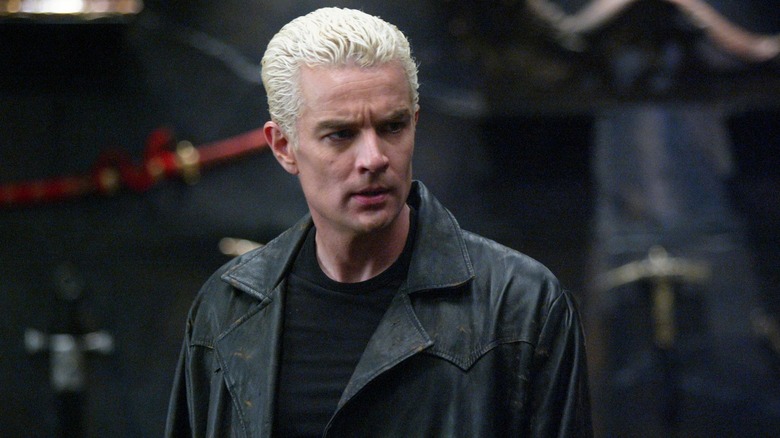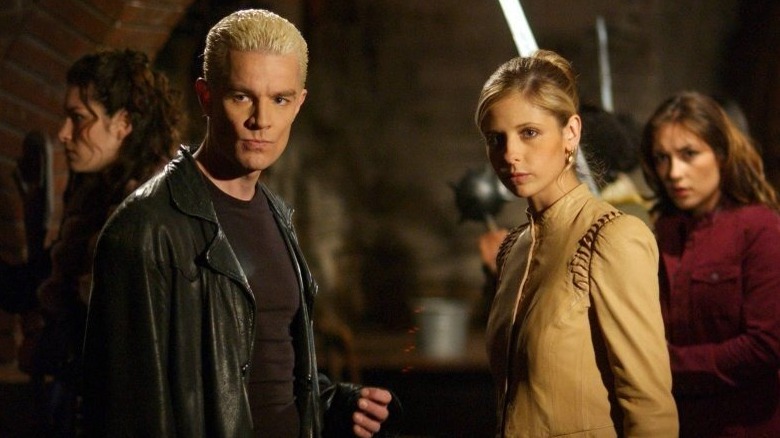Buffy's Most Problematic Scene Sent Spike Actor James Marsters Into Therapy
Even though it has a legacy as a strongly feminist series, "Buffy the Vampire Slayer" still has an episode that was so problematic that it affected the mental health of some its cast members. Actor James Marsters, who played Spike on the show, entered therapy after enacting the infamous Spike and Buffy (Sarah Michelle Gellar) near-rape scene from "Seeing Red."
Talking about the situation on the podcast "Inside of You with Michael Rosenbaum," Marsters recalled, "Buffy crushed me." He went on to describe the circumstances of Spike's attempted assault without defending or praising his character's position. "It's a problematic scene for a lot of people who like the show. And it's the darkest professional day of my life." Sexual assault is a particularly sensitive topic for Marsters, and he confessed during the interview that he avoids roles that require him to play out a rape and doesn't watch films and shows that deal with the topic. Having to act out Spike's aggression literally had him on the floor in the fetal position, and he couldn't resist performing it due to his contractual obligations.
Marsters admitted he knew it would be tough for the audience because they relate to Buffy. This is a reason why he had earlier advocated for Spike's death. In the end, it seems that his main concern was with Gellar. "It was just doing that to Sarah, it was having to put her through that," he told Rosenbaum. She showed similar concern for him on-set, per his comments. But his mission as an actor forbade him from using half-measures. "You don't want to film a scene like that and have it suck on top of it." And it turns out the very reason for the episode's existence stems from some writer's room catharsis.
Seeing Red came about from a writer's room excercise
James Marsters went on to explain that Buffy and Spike's storyline stemmed from the personal experience of a female writer who was inspired by an exercise where the writing team put down the worst thing that ever happened to them on paper. When asked to jot down a story about her worst moment, she recounted the time she threw herself at a college boyfriend when he split up with her. For the script, she flipped the genders and added magic. The colleague has gone unnamed; story editor Rebecca Kirshner is the only woman listed on the episode's writing credits.
"Seeing Red" isn't just a difficult "Buffy" episode because of Spike's assault of the titular heroine, but because Tara Maclay (Amber Benson) is shot to death during its denouement. Since much of the episode focuses on Tara blissfully canoodling with Willow Rosenberg (Alyson Hannigan), it's become a classic example of the Bury Your Gays trope, as well as a problematic encapsulation of the show's sexual and gender politics. It's gone on to cause much debate among fans and scholars of the program.
In the end, Marsters still manages to look back on his time in the Buffyverse with fondness. "To this day, there's a little tiny Sunnydale in my mind, and there's a little tiny Spike and he's in love with a little tiny Buffy," he said. "To this day. It's still real." And thankfully, when things got too real to Marsters, he knew who to call.
If you or anyone you know has been a victim of sexual assault, help is available. Visit the Rape, Abuse & Incest National Network website or contact RAINN's National Helpline at 1-800-656-HOPE (4673).

